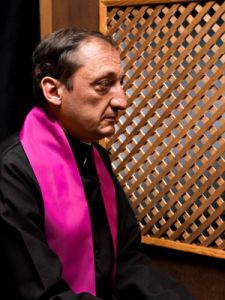 The Universal Life Church Monastery deeply cherishes religious freedom, but it also has a vested interest in the well-being of children, which is also a fundamental human rights issue. In at least two separate instances, the two rights have butted heads, forcing local leaders to mull whether accusations of child abuse can be ignored to protect religious beliefs. As Universal Life Church ministers, we must decide when to say no to unbridled religious freedom for the sake of protecting the most vulnerable members of our community.
The Universal Life Church Monastery deeply cherishes religious freedom, but it also has a vested interest in the well-being of children, which is also a fundamental human rights issue. In at least two separate instances, the two rights have butted heads, forcing local leaders to mull whether accusations of child abuse can be ignored to protect religious beliefs. As Universal Life Church ministers, we must decide when to say no to unbridled religious freedom for the sake of protecting the most vulnerable members of our community.
One case involving alleged child abuse on the part of religious leaders comes from the U.S. state of Florida. A yearlong investigation published in The Tampa Bay Times reveals the state's lax oversight on dozens of religious youth camps, some of which have been shut down in other states. In one case, a 15 year-old boy named Samson Lehman was airlifted to hospital after collapsing from extreme dehydration due to a three-day bout of endless rigorous exercise at Gateway Christian Military Academy. Camp leaders had also administered ibuprofen to the teenager, which only worsened the build-up of toxicity in his system. The academy is affiliated with a nationwide organization called Teen Challenge, which has a history of committing child abuse in other U.S. states. While ministers ordained online should treat restrictions on religious freedom with extreme caution, they should apply this same scrutiny to accusations of child abuse committed in the name of it.

Child abuse claims have been made in other parts of the world, too. In Australia, the federal government has announced a Royal Commission into claims of child abuse in the Catholic Church. At stake is the religious freedom of Catholic priests to withhold information obtained during formal confessions of sins. In the Catholic Church, the "confessional seal" is a centuries-old sacrament which holds that communications between priests and sinners should remain confidential, even for the vilest crimes, and there are no canonical exceptions. Theoretically, compelling a priest to disclose information regarding an admission of child abuse would impinge on the priest's fundamental religious freedom--but it would also protect the fundamental human rights of vulnerable people like children. For legally ordained pastors in the ULC, the question becomes whether the religious freedom to withhold information on alleged crimes trumps the rights of victims.
In both cases, local authorities have been forced to confront the unsavory consequences of allowing the free exercise of religion to go unchecked. In Florida, local authorities have granted religious organizations the freedom to inflict life-threatening physical trauma on minors out of fear that strict oversight would impinge on First Amendment rights; likewise, in Australia, treating the confessional seal as sacrosanct and inviolable would potentially enable priests to participate in the perpetuation of crimes against children. Becoming an ordained minister means protecting everybody's rights, however, and this means balancing abstract concepts of religious freedom with other basic human rights.
While the ULC Monastery recognizes the fundamental human right to live according to one's faith, it also recognizes that this right has a limit, and that limit is where it impinges on the rights of others. Granting clergy the right to do whatever they want in the name of religion is not religious freedom, but religious tyranny. However, deciding where to draw the line requires careful contemplation. Exactly how far should government go in investigating claims of child abuse on the part of religious leaders?
Sources:


0 comments